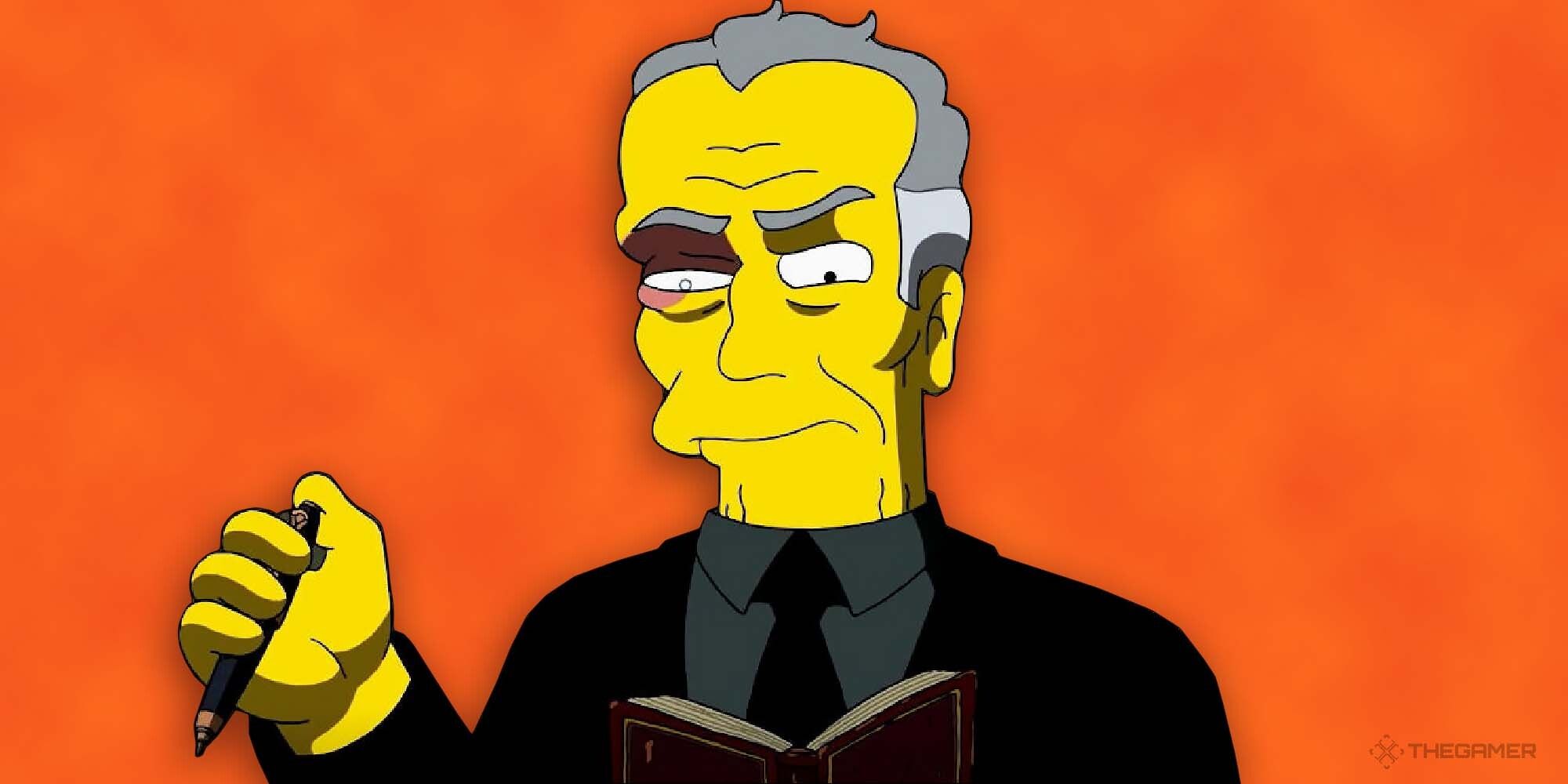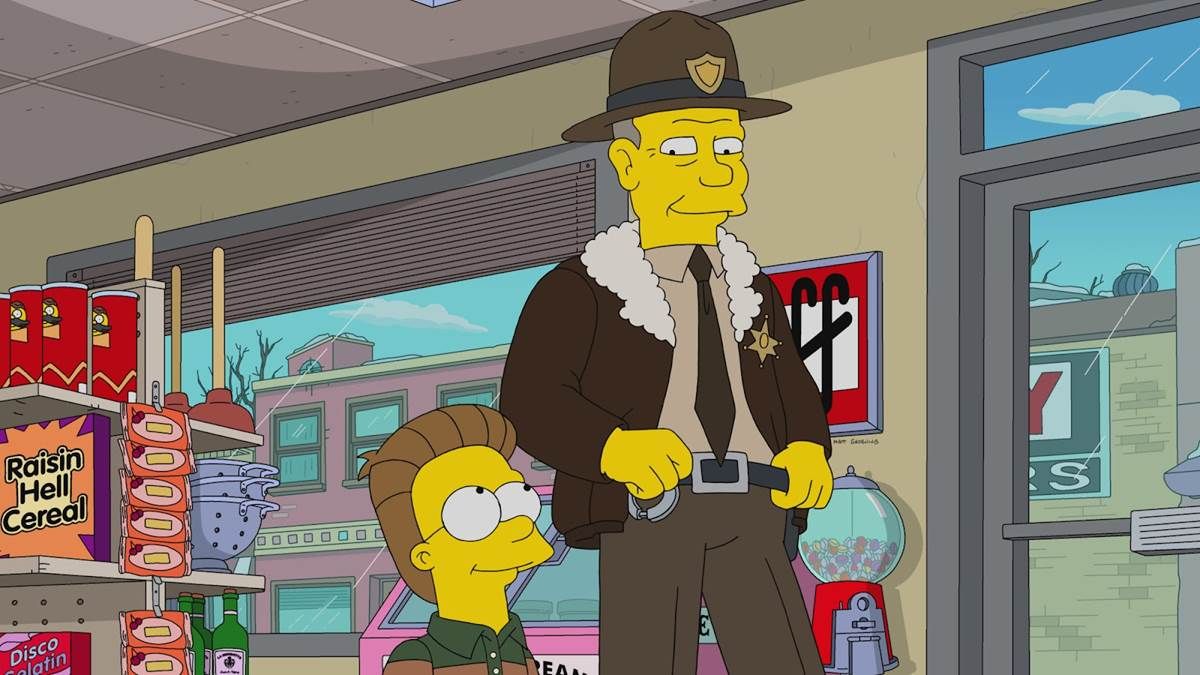People have long been of the opinion that anything after the Golden Age of The Simpsons isn’t worth paying attention to. Even as a die hard Simpsons fan, it’s hard for me to disagree too much. Post-season 11 or so, there’s nothing like Last Exit To Springfield, Homer the Heretic, or the all-encompassing greatness of season eight. A while ago, I wrote that Barthood was the only episode since the Golden Age that would feel at home in the era when The Simpsons was the undisputed best show on television. In retrospect, I may have been a little bit harsh on Thanksgiving of Horror, which is also worthy. This weekend, a third episode joined them: A Serious Flanders.
A Serious Flanders is a non-canonical parody of Fargo, with lots of other Coen references in there too. This is not just a passing parody used in a handful of scenes, or a vague theme slapped on a lacklustre episode like the time the show kinda-sorta parodied La La Land as an excuse for an Ed Sheeran cameo. A Serious Flanders is Fargo in the way The Shinning is The Shining. It’s a homage done with the utmost reverence, played straight, and used to build upon the original in a fresh way that respects the source material while adding its own unique spin. It’s the kind of thing The Simpsons used to do all the time, doesn’t do anymore, and should do a lot more in the future.
Barthood is similar - it’s a loose parody of Boyhood, but used to tell an emotional tale across Bart’s life, underpinned by his relationship with his grandfather. I’m not saying The Simpsons should just do parody from now on - we’ve seen how disastrous forcing that can be with the Treehouse episodes - but there’s something in the water here. Barthood and A Serious Flanders are both fresh ideas. Thanksgiving of Horror tells of the past, present, and future of Thanksgiving through Simpsonized scenarios - it’s another fresh idea. The other great modern episodes share this idea too. Halloween of Horror is a Halloween episode that explores Lisa’s innocence rather than just a parody of whatever movie was in cinema’s eight months ago, The Saga of Carl centres on Carl’s childhood in Iceland, Brick Like Me is Simpsons meets Lego, and Holidays Of Future Passed eschews the usual ‘Simpsons but future’ jokes to tell an actual story. Eternal Moonshine deserves a mention too, but I’ll be damned if I can summarise that one succinctly in a sentence.
A Serious Flanders, an incredibly rare two part episode, feels like it has learned from Warrin’ Priests, the last one to try this format. That was a vaguely canonical tale of a new priest in town, and because every canon episode is a hard reset to how things were at the start, it whiffed its final act something fierce - but it proved The Simpsons could survive a new way of storytelling. With over 700 episodes in the bag and 170+ top tier episodes securing syndication rights will always be worth the big bucks, the show should be free to take risks. I’m not sure A Serious Flanders is the biggest risk it has ever taken - that’s either Brick Like Me or the lousy episode where they meet Kodos and Kang for real - but it’s close, and it’s done with precision.
As the episode starts, viewers are greeted by a Simpflix logo - like The Simpsons, but Netflix. Considering The Simpsons is on Disney+, that’s a little strange, but it’s all to set up that A Serious Flanders is non-canonical, using a bingeable Netflix miniseries as the framework. It’s an excellent decision that instantly lets you know this episode is different, without leaning on it too hard in the way Family Guy did in its totally-joking-guys-but-no-actually-I’m-serious beg for an
Emmy with the season 16 premiere Emmy-Winning Episode. The direction throughout this episode continues to shine, riffing off the Coen’s as a bloody wound fades out into a sliced open pomegranate.
The tale is simple - Flanders finds money, donates it in his Paw-Paw’s name, and attracts the attention of a stubborn, gruesome debt collector. It deals with pride, selfishness, religion, the nature of goodness, and lots and lots of murder. While the title is taken from A Serious Man, it’s mainly No Country For Old Men, Miller’s Crossing, and Fargo. We see Mr. Burns get his head blown clean off, the Rich Texan decapitated, Homer’s arm burned and scarred, all while people are stabbed, gunned down, and beaten to a pulp. Fat Tony is killed by having his head dunked in a deep fat fryer, although in a nod to Billy Bob Thornton’s rampage in the Fargo TV show, the viewers remain in the other room and can only hear the carnage. I meant it when I said this episode took risks.
Not all future episodes of The Simpsons need to be violent, nor parodies, nor non-canon, nor two-parters. None of the individual ingredients of A Serious Flanders make it great. Brian Cox, Timothy Olyphant, and Cristin Milioti guest starring all help, but A Serious Flanders works because it isn’t weighed down by the 700 episodes that preceded it. It’s allowed to be its own thing, and it does something new. Doing something new doesn’t always work - The Serfsons was a bit meh and this season opened with a big musical dud - but it’s much better than coasting. Far too many episodes have coasted.
A Serious Flanders, brave enough to justify a 44-minute runtime, never coasts for second. If The Simpsons is going to die with dignity - and it will one day die - it needs to go out taking more risks like this one. When all’s said and done, no one will remember the likes of The Winter of Our Monetized Content.







